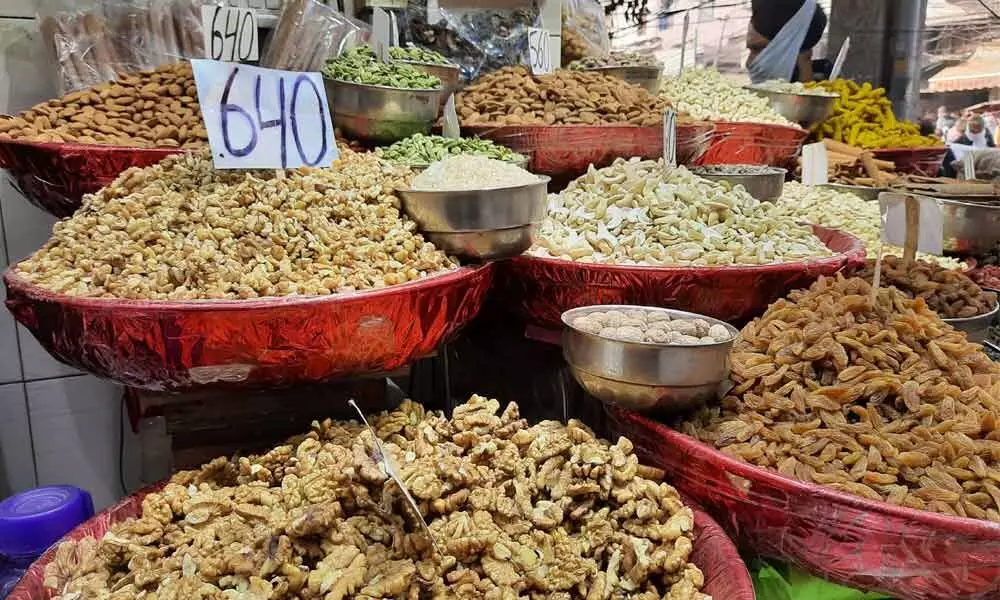Asia's largest spice market in a bind

Asia’s largest spice market in a bind
Post-lockdown, Khari Baoli in New Delhi is yet to register upward trend
New Delhi: The hustle and bustle in the lanes of Khari Baoli is less noisy than usual. The usual charm of this lane has somewhat faded owing to the pandemic and changing times. Asia's largest spice market, Khari Baoli Market, here at Chandini Chowk of Old Delhi continues to struggle for sustenance. The market, which was established in the era of Mughal Emperor of Shah Jahan in 17th century, has over 2,000 wholesale and retail shops dealing in spices, exotic herbs and dry fruits.
Even as the nationwide lockdown was lifted in June-July 2020, the wholesale and retail spice market at Khari Baoli is yet to register any upward trend as most established vendors complain of heavy losses and lower demand even amongst the localities.
Anshul Kumar, owner of one of the oldest wholesale spice shops in Delhi, spoke to Bizz Buzz on as to why the sector is unable to pick up as compared to other businesses.
"Our shop was set up in 1917 and since then we've been dealing in spices, dry fruits and other condiments. But the last three years have been particularly challenging. It is not just because of Covid-19, customers have turned their preference towards online businesses. Here at our shops, customers can assess the quality of the products first-hand before buying it. But you cannot get that facility online. It is understandable that because of Covid-19 people are afraid to buy anything in the market. But sales at Khari Baoli has never been so low," said Kumar, the 4th generation owner of the famous Meher Chand and Sons.
A similar echo can be heard across the market as shopkeepers in wholesale and retail find it tough to cover the cost of purchases, let alone target for any profits.
Kumar also pointed towards the fact, that unlike other businesses, spice trade needs special attention since the items are perishable and although they do have a shelf-life, customers would not prefer purchasing stale condiments.
"It has been six months since we resumed work, but we are not able to make even 50 per cent of sale of what we used to do till 2019. We had to dispose off most of the items during lockdown. We are yet to cover all the losses we incurred last year. I do not see any improvement at least for a year," Kumar added.
Another wholesale vendor points out that there is steady supply of spices, unaffected by the recent farmers' protest at the Delhi bordering areas.
"The biggest challenge is that some of our spices and dry fruits have to be imported from other countries such as Latin America, the Middle East and the US. Our sales have been poor but we are still paying higher taxes. We are paying 5 per cent -12 per cent of GST on spices. We can't cover our bases if the tax slab is not lowered by the Centre this year," Harish, a wholesaler, said. "In this upcoming Budget, I hope government gives special attention to businesses like ours and offer some solution on logistics, infrastructure, tax and import duty."
Kirana Committee or The Whole Sale Market Association is confident that business will be back to normal soon. "Things are getting back on track. We have around 2,000 wholesale spice shops here and only 1 per cent of them closed down permanently due to Covid-19," Vijay said.
















